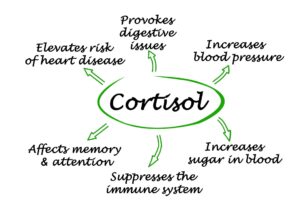
Nettle root (Urtica dioica) is a common plant that belongs to the Urtica genus and Urticaceae family. It can be found growing in various parts of the world, including Europe, Asia, and North America. The plant has been used in traditional medicine for centuries to treat various ailments, including allergies, arthritis, and urinary problems.
Nettle root contains a wide range of compounds, including flavonoids, polysaccharides, vitamins, minerals, and amino acids. The plant also contains several bioactive compounds, including lignans, triterpenoids, and lectins, which contribute to its medicinal properties. Here are some of the health benefits of nettle root:
Reduces inflammation
Nettle root has been shown to possess anti-inflammatory properties, which can help reduce inflammation throughout the body. Inflammation is a natural response of the immune system when it is threatened by infections or injuries. However, chronic inflammation can lead to several health problems, including arthritis, heart disease, and cancer.
Nettle root extract has been shown to inhibit the production of pro-inflammatory cytokines, which are signaling molecules that promote inflammation. This effect is likely due to its ability to suppress the activation of several inflammatory pathways, including NF-κB and COX-2. In addition, nettle root extract can also reduce oxidative stress, which is a major contributor to chronic inflammation.
Improves prostate health
Nettle root is widely recognized for its ability to improve prostate health. The plant contains several compounds, including beta-sitosterol, that can help reduce the size of the prostate gland and alleviate urinary symptoms associated with benign prostatic hyperplasia (BPH).
BPH is a common condition that affects men over the age of 50 and is characterized by an enlarged prostate gland, which can cause difficulty in urinating. Clinical studies have shown that nettle root extract can significantly improve urinary flow rate and decrease residual urine volume in men with BPH. It is believed that nettle root extract works by inhibiting the conversion of testosterone to dihydrotestosterone (DHT), which is a hormone that causes the prostate gland to grow.
Reduces allergy symptoms
Nettle root has potent anti-allergic properties, which have been used for centuries to reduce allergy symptoms. The plant contains several compounds, including quercetin and kaempferol, which can help block the release of histamine and other inflammatory mediators that cause symptoms such as sneezing, itching, and congestion.
Several clinical studies have shown that nettle root extract can significantly reduce allergy symptoms in people with allergic rhinitis. One study found that nettle root extract was as effective as a common anti-allergy drug (cetirizine) in reducing symptoms such as sneezing and itching.
Improves blood sugar control
Nettle root has been shown to have hypoglycemic effects, which can help improve blood sugar control. The plant contains several compounds that can help regulate blood sugar levels, including alpha-lipoic acid, chlorophyll, and fiber.
Studies have shown that nettle root extract can significantly reduce fasting blood sugar levels in people with diabetes. In addition, nettle root extract can also improve lipid profile by lowering levels of triglycerides and LDL cholesterol, which are risk factors for cardiovascular disease.
Promotes hair growth
Nettle root has been traditionally used to promote healthy hair and prevent hair loss. The plant contains several compounds that can help stimulate hair growth, including beta-sitosterol, lignans, and polysaccharides.
Recent studies have shown that nettle root extract can help increase hair growth and thickness by reducing 5-alpha-reductase activity, which is an enzyme that converts testosterone to DHT. DHT is a hormone that is known to cause hair loss in men and women.
Improves bone health
Nettle root contains several minerals, including calcium, magnesium, and silicon, which are essential for healthy bones. Adequate intake of these minerals can help prevent osteoporosis, a condition where bones become weak and brittle.
Recent studies have shown that nettle root extract can help increase bone density and prevent bone loss in menopausal women. In addition, nettle root extract can also improve joint health by reducing inflammation.
Conclusion
Nettle root is a versatile plant that has been used for centuries for its medicinal properties. The plant contains several bioactive compounds that can help reduce inflammation, improve prostate health, reduce allergy symptoms, improve blood sugar control, promote hair growth, and improve bone health. However, it is important to note that more research is needed to fully understand the therapeutic potential of nettle root and its safety. Nevertheless, nettle root is a promising plant that can offer a wide range of health benefits when used properly.




